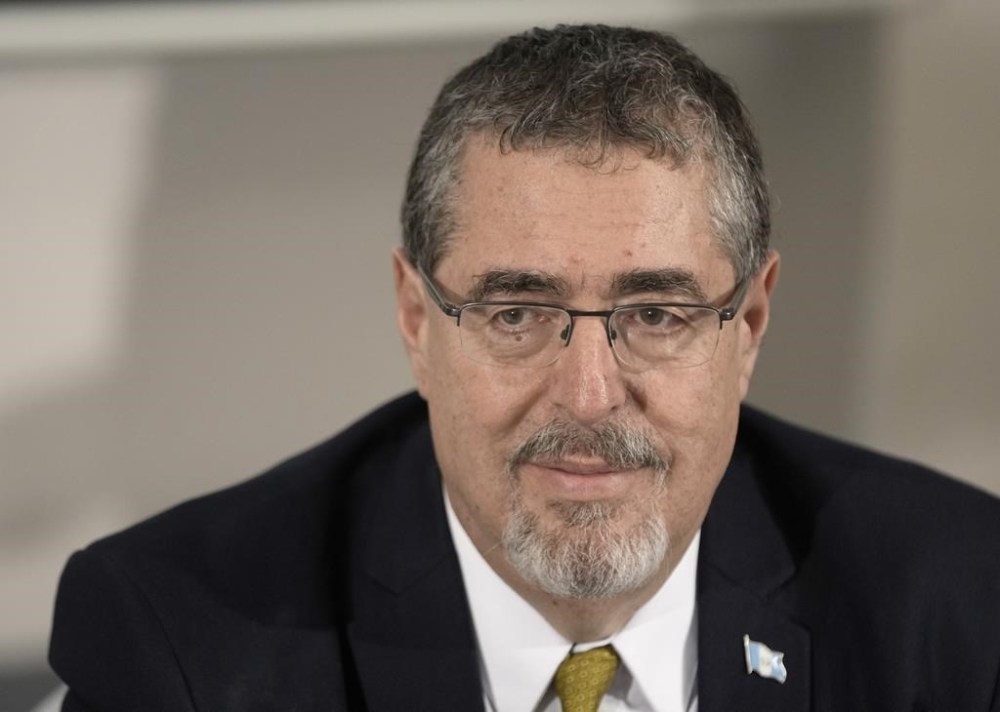OAS human rights body demands protection for apparent Guatemalan election winner amid plot rumors
Advertisement
Read this article for free:
or
Already have an account? Log in here »
To continue reading, please subscribe:
Monthly Digital Subscription
$0 for the first 4 weeks*
- Enjoy unlimited reading on winnipegfreepress.com
- Read the E-Edition, our digital replica newspaper
- Access News Break, our award-winning app
- Play interactive puzzles
*No charge for 4 weeks then price increases to the regular rate of $19.95 plus GST every four weeks. Offer available to new and qualified returning subscribers only. Cancel any time.
Monthly Digital Subscription
$4.99/week*
- Enjoy unlimited reading on winnipegfreepress.com
- Read the E-Edition, our digital replica newspaper
- Access News Break, our award-winning app
- Play interactive puzzles
*Billed as $19.95 plus GST every four weeks. Cancel any time.
To continue reading, please subscribe:
Add Free Press access to your Brandon Sun subscription for only an additional
$1 for the first 4 weeks*
*Your next subscription payment will increase by $1.00 and you will be charged $16.99 plus GST for four weeks. After four weeks, your payment will increase to $23.99 plus GST every four weeks.
Read unlimited articles for free today:
or
Already have an account? Log in here »
Hey there, time traveller!
This article was published 24/08/2023 (863 days ago), so information in it may no longer be current.
GUATEMALA CITY (AP) — The Organization of American States’ human rights commission asked Thursday that Guatemala provide protection for Bernardo Arévalo, the winner of the country’s Aug. 20 elections, after reports emerged of a possible plot to kill him.
The commission said in a statement Thursday that there were reports of “at least one” plan to harm or kill Arévalo and his running mate, Karin Herrera.
The Guatemalan government said it has offered protection, and Arévalo told journalists in Guatemala that he was coordinating with the government on protective measures.

But the commission wrote in a statement that “nonetheless, there is concern about information on at least one possible plan to attack the life and welfare” of Arévalo and Herrera.
“At least thee sources within the government that are considered highly reliable have warned about the existence of a plot codenamed ‘Colosio,’” the commission said, an apparent reference to the 1994 assassination in Mexico of ruling-party presidential candidate Luis Donaldo Colosio.
Guatemalans voted for Arévalo in a landslide in the Aug. 20 elections, but his opponent, former first lady Sandra Torres, has not conceded, or said anything for that matter. The election results have not been certified, a legal step necessary for Arévalo to become president.
That’s not the only hitch: The attorney general’s office also continues to investigate the registration of his Seed Movement party and has already asked a judge once to suspend it.
Arévalo’s platform of eradicating corruption has earned him enemies among Guatemala’s political and economic elite.
The 64-year-old son of former President Juan José Arévalo was born in Uruguay, where his father was in exile following the ouster in a 1954 CIA-backed coup of his successor President Jacobo Árbenz, whom the U.S. saw as a threat during the Cold War.

